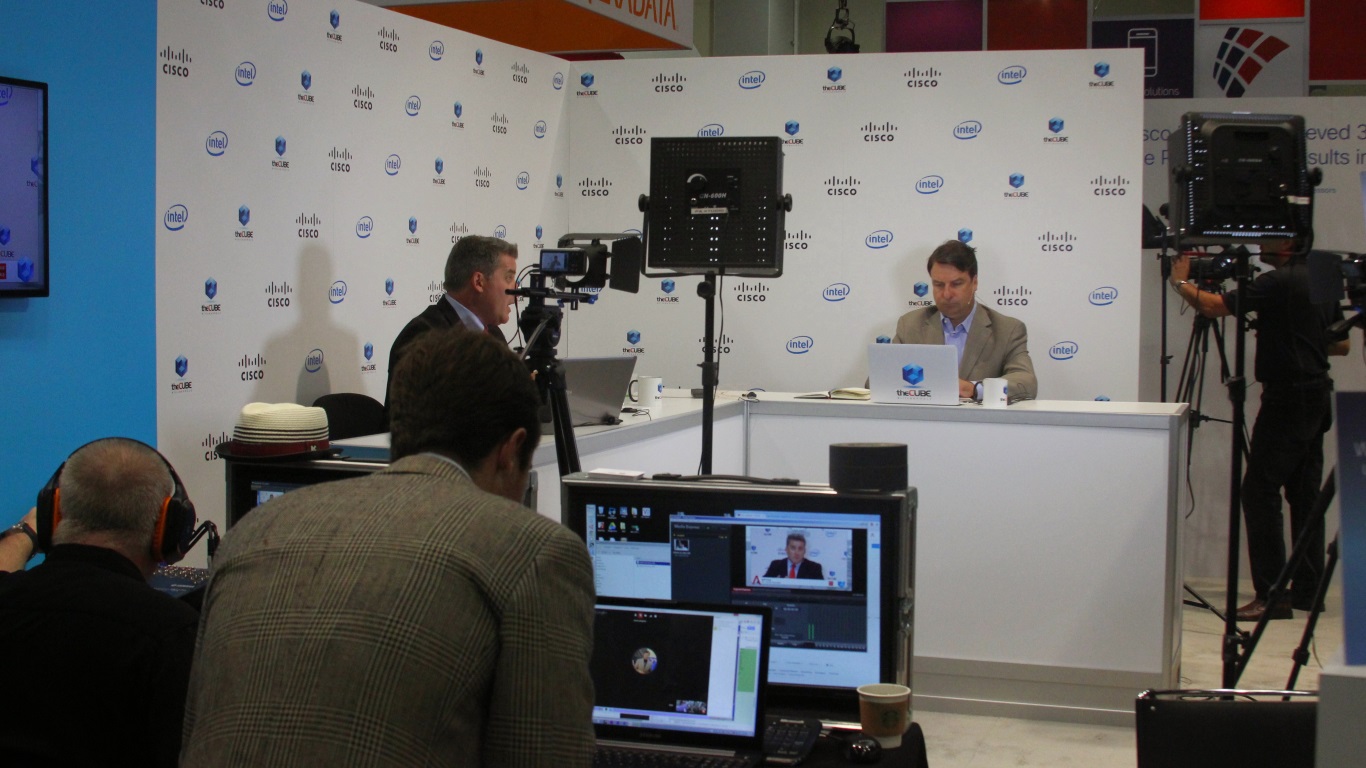 NEWS
NEWS
 NEWS
NEWS
 NEWS
NEWS
John Furrier & Jeff Frick in theCUBE at #OOW14
Oracle Corp. and the term “open-source” are rarely featured in the same sentence, but according to the man who leads the development of the firm’s community databases, it’s actively trying to participate in the ecosystem.. Not only that, but the movement represents a key component of the vendor’s long-term product strategy.
Appearing on SiliconANGLE’s theCUBE at the recently concluded Oracle OpenWorld 2014 in San Francisco, director Dave Seglau laid out the case for why a company that has made its name selling proprietary software is incorporating open-source technologies into its product roadmap. The rationale, he revealed, is quite straightforward.
“NoSQL is definitely a component of Big Data and is part of the strategy of storing and managing very fast but simple operations over simple data,” Seglau explained to hosts Jeff Kelly and Jeff Frick. Oracle’s namesake relational system has a notoriously difficult time handling that kind of unstructured information, a critical gap that leaves the vendor little choice but to embrace the new paradigm of enterprise data management.
Elaborating, he said that “NoSQL, as it matures as a technology, will be very much part and parcel of what Oracle views as our Big Data strategy, and clearly part of that is Oracle Big Data SQL,” a tool for manipulating data across multiple systems that the company introduced in July. The software shares many capabilities with Teradata Corp.’s QueryGrid, enabling users to send the same requests to their relational database, Hadoop and NoSQL deployments without having to rewrite the statement in the native syntax of each environment.
That takes much of the hassle out of running heterogeneous data management environments, but the pitch is undermined by the fact that Oracle is only one of several vendors offering that functionality. According to Seglau, however, the company sets itself apart in one vital area: interoperability.
“For Oracle customers, one of the important value-adds is integration. NoSQL is not a siloed database, it’s integrated with the rest of the application infrastructure,” he explained. That includes everything from Hadoop through Oracle Database and the company’s Enterprise Manager software to the underlying hardware.
Read more after the video:
.
That part of the value proposition is taken up by the company’s Engineered Systems, a series of pre-packaged appliances designing specifically to run its software. Oracle also supports alternative converged infrastructure solutions, namely Cisco Systems Inc.’s UCS family. According to Seglau, the partnership with the networking kingpin adds yet another important differentiator to the mix.
“One of the values that Cisco brings to the relationship is understanding what the bandwidth requirements of communications between nodes, especially in cluster environments,” he said. The ability to efficiently handle traffic among the individual machines that make up an analytics environment has become a crucial requirement for users, especially when it comes to use cases involving near-real-time processing.
All of that ties into Oracle’s broader strategy of delivering a unified platform for processing the different types of data flooding into the enterprise, which Seglau divulged is also the reason that it’s been warming up to the open-source community. “What I’ve seen over the last several years is a change in perspective of ‘no, it’s not just about the Red Stack, it’s about solving customer problems’ – which may involve components that are licensed and components that are open-source. Oracle is very much embracing that,” he concluded.
THANK YOU